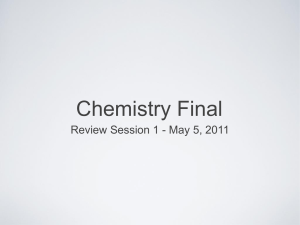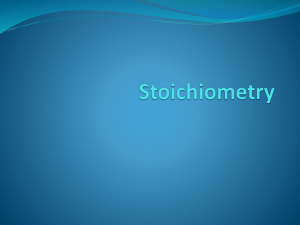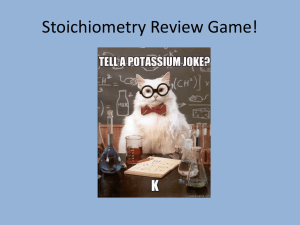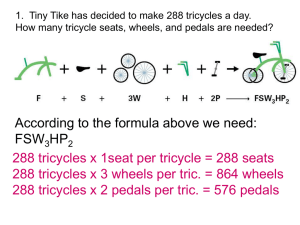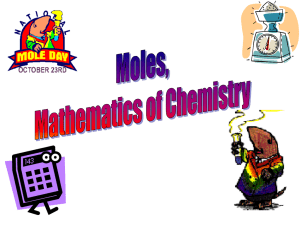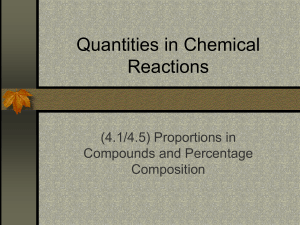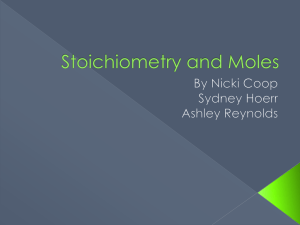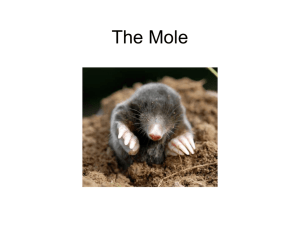Combustion Reactions - Miami Beach Senior High School
advertisement
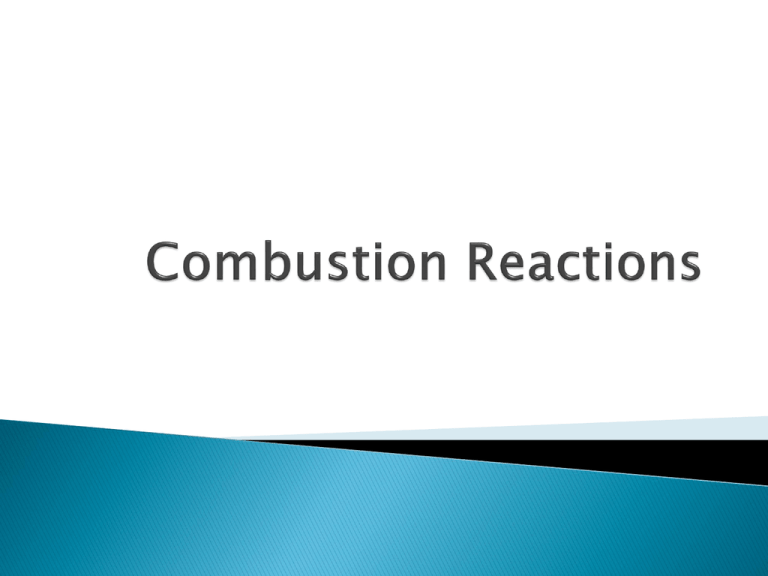
A combustion reaction occurs when a compound that contains carbon and hydrogen is burned in Oxygen gas (O2). It always produces carbon dioxide and water vapor. Example: ◦ CH4 + 2 O2 CO2 + 2 H2O ◦ Many times the compound also contains oxygen ◦ Example: ◦ 2C3H4O3 + 5 O2 6 CO2 + 4 H2O ◦ Notice the products remain the same. Vitamin C is a compound made up of carbon, hydrogen and oxygen atoms. When we combust 1.00g of vitamin C we produce 1.50g of carbon dioxide and 0.408g of water vapor. Find the empirical formula of vitamin C. #1 We know that it is a combustion reaction so: ◦ CxHyOz + O2 CO2 + H2O ◦ #2 We notice that all the carbon atoms from vitamin C became part of carbon dioxide so; ◦ 1.50g CO2 x 1 mole CO2 / 44 g = 0.0341 moles of CO2 ◦ Since there is only 1 atom of carbon in CO2 we have 0.0341 moles of C #3 We have 0.408 g of H2O so all the hydrogen atoms from vitamin C became part of the water vapor. 0.408 g H2O x 1 mole H2O / 18 grams = 0.0227 moles of H2O Notice thee are TWO atoms of hydrogen in H2O so; We have 2x 0.0227= 0.0454 moles of Hydrogen #4 We now go back to Vitamin C, CxHyOz We know we have: 0.0341 moles of C x 12g/1 mole of C= .409g of C 0.0454 moles of H x 1g / 1mole of H = .0454g of H Oxygen = (1.00- .409- .0454)= .546 g of O #5 We now know the grams of each of the elements that make up vitamin C ◦ C = .409g x 1mole C/ 12g = .0341 moles ◦ H = .0454 g x 1mole H/ 1g = .0454 moles ◦ O = .546 g x 1mole O/ 16 g = .0341 moles ◦ ◦ ◦ ◦ Divide all moles by smallest answer C= .0341/.0341 =1 H= .0454/.0341 = 1.33 O = .0341/ .0341= 1 ◦ Multiply all answers by 3 and we get ◦ C 3 H4 O3 1.Balance the following reactions ◦ A) CaO + HNO3 Ca(NO3)2 + H2O ◦ B) NH3 + H2SO4 (NH4)2SO4 2.Given the following reaction, find the grams of H2O are produced ◦ 2C6H6 + 15 O2 12 CO2 + 6 H2O ◦ You start with 125 grams of C6H6 and 875 g of O2 3. Find the empirical formula of a compound that is made up of C,H and O. When you combust 2.00g of the compound in excess oxygen gas you produced 3.83g of CO2 and 2.35g of H2O
